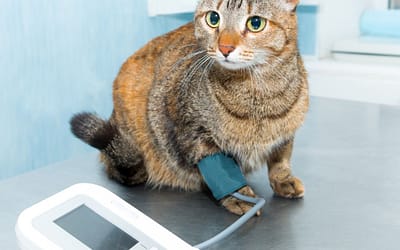Feline herpes virus is a common respiratory disease that has been affecting cats worldwide. As a cat parent, you may have noticed your furry friend developing some of these symptoms, prompting you to search for information about the herpes virus in cats.
If you’ve recently seen your cat with symptoms such as sneezing, runny nose, watery eyes, coughing, fever, loss of appetite, lethargy, ulcers on the nose, mouth, or eyes, conjunctivitis, difficulty breathing it’s possible that they have contracted the Feline Herpes Virus.
In this article, let’s understand the symptoms of the feline herpes virus, what measures to take, and how to prevent its spread.
Feline Herpes Virus (FHV)
The feline herpes virus, a common respiratory disease in cats is also known as feline viral rhinotracheitis (FVR). FHV is caused by the feline herpesvirus-1 (FHV-1), a highly contagious disease that easily spread from cat to cat through sneezing, coughing, and sharing food and water bowls.
According to the American Society for the Prevention of Cruelty to Animals (ASPCA), up to 90% of cats carry this virus, and it can remain dormant in their bodies for long periods. However, when a cat is stressed or their immune system is compromised and the virus becomes active leading to symptoms. While the disease is not life-threatening, it can lead to serious respiratory infections, especially in kittens and older cats.
Tips to prevent Feline Herpes Virus (FHV)
To provide a better life for your feline buddy, you should be fully aware of the measures you can take to prevent the spread of the Feline Herpes Virus and keep your furry friend healthy.
Keep your cat indoors
Lure your cat with treats and toys to keep them indoors. By doing this, you are protecting them from those who are the carriers of the disease. If your cat still fights to go outside ensure that they’re not getting too close to other cats.
Maintain cleanliness in your cat’s living area
Regularly clean your cat’s play area, litter box, food-water bowls, and sleeping area to prevent the spread of the virus. Make sure to use only pet-friendly cleaning agents that can be toxic to your cat.
Vaccinate your cat against FHV
Since there is no proven cure for the Feline Herpes Virus, vaccination can help in preventing the most severe symptoms and protect your cat from the disease.
Keep your cat stress-free
Even with cats, a stressed mind can activate the FHV in cats. Cats need to be active for physical health and mental stimulation. Try to provide a calm and stress-free environment for your furry friend. Here are a few things you can do:
- Spend more time with your cat
- Use catnip to calm them
- Change your cat’s diet
- Regular medical check-ups
- Provide more toys to play with
Boost your cat’s immune system
Provide a healthy diet and regular exercise to boost your cat’s immune system and prevent the herpes virus from becoming active. Your cat’s healthy diet should include fresh meat. Their diet should also include a good balance of fat, carbohydrates, vitamins, minerals, fatty acids, and amino acids, which are building blocks for protein. Keep in mind that your cats’ dietary needs will change with age.
Wash your hands after handling other cats
As a cat lover, you must be spending a lot of time playing with other outdoor and indoor cats. Make sure to wash your hands before petting your cat to prevent the spread of the Feline Herpes Virus from one cat to another. Maintain cleanliness in your house thoroughly, especially if the cats you play with are exhibiting symptoms.
Feline Herpes Virus can lead to uncomfortable symptoms and more serious infections eventually affecting your cat’s immune system. Look out for the symptoms and take precautionary measures. If you suspect that your cat is exhibiting symptoms of the FHV, seek immediate veterinary care to determine the cause and provide a suitable treatment. To prevent the herpes virus from becoming active ensure that your cat’s living area is clean, they’re fully vaccinated, and stress-free.




0 Comments